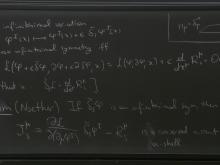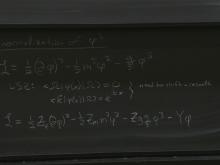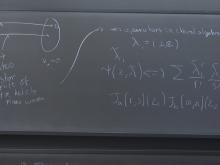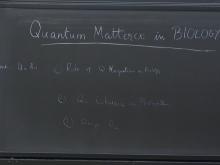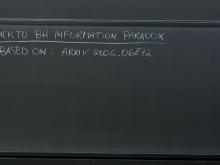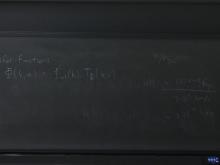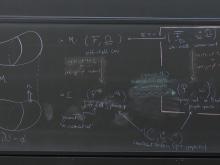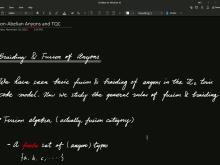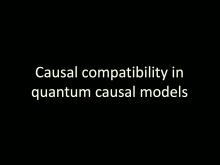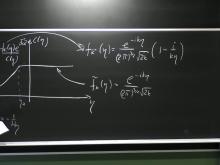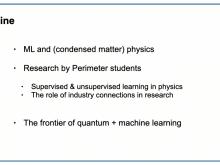Format results
-
22 talks-Collection NumberC23040
Talk
-
Classical Physics 2023/24
14 talks-Collection NumberC23041Talk
-

Classical Physics Lecture - 090623
Aldo Riello Perimeter Institute for Theoretical Physics
PIRSA:23090027 -

Classical Physics Lecture - 090723
Aldo Riello Perimeter Institute for Theoretical Physics
PIRSA:23090038 -

Classical Physics Lecture - 090823
Aldo Riello Perimeter Institute for Theoretical Physics
PIRSA:23090028 -

Classical Physics Lecture - 091123
Aldo Riello Perimeter Institute for Theoretical Physics
PIRSA:23090029 -

Classical Physics Lecture - 091323
Aldo Riello Perimeter Institute for Theoretical Physics
PIRSA:23090030 -

Classical Physics Lecture - 091523
Aldo Riello Perimeter Institute for Theoretical Physics
PIRSA:23090031 -

Classical Physics Lecture - 091823
Aldo Riello Perimeter Institute for Theoretical Physics
PIRSA:23090032 -

Classical Physics Lecture - 092023
Aldo Riello Perimeter Institute for Theoretical Physics
PIRSA:23090033
-
-
Quantum Theory 2023/24
14 talks-Collection NumberC23042Talk
-

Quantum Theory Lecture - 090623
-
Bindiya Arora Perimeter Institute for Theoretical Physics
-
Dan Wohns Perimeter Institute for Theoretical Physics
PIRSA:23090039 -
-

Quantum Theory Lecture - 090723
-
Bindiya Arora Perimeter Institute for Theoretical Physics
-
Dan Wohns Perimeter Institute for Theoretical Physics
PIRSA:23090050 -
-

Quantum Theory Lecture - 090823
-
Bindiya Arora Perimeter Institute for Theoretical Physics
-
Dan Wohns Perimeter Institute for Theoretical Physics
PIRSA:23090040 -
-

Quantum Theory Lecture - 091123
-
Bindiya Arora Perimeter Institute for Theoretical Physics
-
Dan Wohns Perimeter Institute for Theoretical Physics
PIRSA:23090041 -
-

Quantum Theory Lecture - 091323
-
Bindiya Arora Perimeter Institute for Theoretical Physics
-
Dan Wohns Perimeter Institute for Theoretical Physics
PIRSA:23090042 -
-

Quantum Theory Lecture - 091423
-
Bindiya Arora Perimeter Institute for Theoretical Physics
-
Dan Wohns Perimeter Institute for Theoretical Physics
PIRSA:23090043 -
-

Quantum Theory Lecture - 091823
-
Bindiya Arora Perimeter Institute for Theoretical Physics
-
Dan Wohns Perimeter Institute for Theoretical Physics
PIRSA:23090044 -
-

Quantum Theory Lecture - 092023
-
Bindiya Arora Perimeter Institute for Theoretical Physics
-
Dan Wohns Perimeter Institute for Theoretical Physics
PIRSA:23090045 -
-
-
Mathematical Physics - Elective (2022/2023)
13 talks-Collection NumberC23027Talk
-

Mathematical Physics Lecture (230403)
Kevin Costello Perimeter Institute for Theoretical Physics
PIRSA:23040042 -

Mathematical Physics Lecture (230404)
Kevin Costello Perimeter Institute for Theoretical Physics
PIRSA:23040075 -

Mathematical Physics Lecture (230405)
Kevin Costello Perimeter Institute for Theoretical Physics
PIRSA:23040043 -

Mathematical Physics Lecture (230404)
Kevin Costello Perimeter Institute for Theoretical Physics
PIRSA:23040076 -

Mathematical Physics Lecture (230412)
Kevin Costello Perimeter Institute for Theoretical Physics
PIRSA:23040046 -

Mathematical Physics Lecture (230414)
Kevin Costello Perimeter Institute for Theoretical Physics
PIRSA:23040047 -

Mathematical Physics Lecture (230417)
Kevin Costello Perimeter Institute for Theoretical Physics
PIRSA:23040048 -

Mathematical Physics Lecture (230404)
Kevin Costello Perimeter Institute for Theoretical Physics
PIRSA:23040077
-
-
Quantum Matter (2022/2023)
13 talks-Collection NumberC23024Talk
-

Quantum Matter Lecture (230403)
Baskaran Ganapathy Institute of Mathematical Sciences
PIRSA:23040006 -

Quantum Matter Lecture (230405)
Baskaran Ganapathy Institute of Mathematical Sciences
PIRSA:23040007 -

Quantum Matter Lecture (230406)
Baskaran Ganapathy Institute of Mathematical Sciences
PIRSA:23050001 -

Quantum Matter Lecture (230411)
Baskaran Ganapathy Institute of Mathematical Sciences
PIRSA:23050002 -

Quantum Matter Lecture (230412)
Baskaran Ganapathy Institute of Mathematical Sciences
PIRSA:23040010 -

Quantum Matter Lecture (230414)
Baskaran Ganapathy Institute of Mathematical Sciences
PIRSA:23040011 -

Quantum Matter Lecture (230417)
Baskaran Ganapathy Institute of Mathematical Sciences
PIRSA:23040012 -

Quantum Matter Lecture (230419)
Baskaran Ganapathy Institute of Mathematical Sciences
PIRSA:23040013
-
-
AdS/CFT (2022/2023)
13 talks-Collection NumberC23026Talk
-
Cosmology (2022/2023)
13 talks-Collection NumberC23028Talk
-
Quantum Gravity (2022/2023)
13 talks-Collection NumberC23025Talk
-

Quantum Gravity Lecture (230403)
Aldo Riello Perimeter Institute for Theoretical Physics
PIRSA:23040026 -

Quantum Gravity Lecture (230404)
Aldo Riello Perimeter Institute for Theoretical Physics
PIRSA:23040018 -

Quantum Gravity Lecture (230411)
Aldo Riello Perimeter Institute for Theoretical Physics
PIRSA:23040020 -

Quantum Gravity Lecture (230413)
Aldo Riello Perimeter Institute for Theoretical Physics
PIRSA:23040021 -

Quantum Gravity Lecture (230417)
Aldo Riello Perimeter Institute for Theoretical Physics
PIRSA:23040028 -

Quantum Gravity Lecture (230418)
Aldo Riello Perimeter Institute for Theoretical Physics
PIRSA:23040022 -

Quantum Gravity Lecture (230420)
Aldo Riello Perimeter Institute for Theoretical Physics
PIRSA:23040023 -

Quantum Gravity Lecture (230424)
Aldo Riello Perimeter Institute for Theoretical Physics
PIRSA:23040029
-
-
Mini introductory course on topological orders and topological quantum computing
2 talks-Collection NumberC23023Talk
-
Causal Inference: Classical and Quantum
10 talks-Collection NumberC23016Talk
-

Causal Inference Lecture - 230306
Robert Spekkens Perimeter Institute for Theoretical Physics
PIRSA:23030069 -

Causal Inference Lecture - 230308
Robert Spekkens Perimeter Institute for Theoretical Physics
PIRSA:23030070 -

Causal Inference Lecture - 230313
Robert Spekkens Perimeter Institute for Theoretical Physics
PIRSA:23030071 -

Causal Inference Lecture - 230315
Robert Spekkens Perimeter Institute for Theoretical Physics
PIRSA:23030072 -

Causal Inference Lecture - 230320
Robert Spekkens Perimeter Institute for Theoretical Physics
PIRSA:23030073 -

Causal Inference Lecture - 230322
Robert Spekkens Perimeter Institute for Theoretical Physics
PIRSA:23030074 -

Causal Inference Lecture - 230329
Robert Spekkens Perimeter Institute for Theoretical Physics
PIRSA:23030076 -

Causal Inference Lecture - 230403
Robert Spekkens Perimeter Institute for Theoretical Physics
PIRSA:23040000
-
-
Quantum Field Theory in Curved Spacetime
7 talks-Collection NumberC23031Talk
-

Quantum Field Theory in Curved Spacetime (AM) - 2023-03-03
Sergey Sibiryakov McMaster University
-

Quantum Field Theory in Curved Spacetime (PM) - 2023-03-03
Sergey Sibiryakov McMaster University
-

Quantum Field Theory in Curved Spacetime (PM) - 2023-03-10
Sergey Sibiryakov McMaster University
-

Quantum Field Theory in Curved Spacetime (PM) - 2023-03-17
Sergey Sibiryakov McMaster University
-

Quantum Field Theory in Curved Spacetime (PM) - 2023-03-24
Sergey Sibiryakov McMaster University
-

Quantum Field Theory in Curved Spacetime (PM) - 2023-03-31
Sergey Sibiryakov McMaster University
-

-
-
Machine Learning for Many-Body Physics (2022/2023)
13 talks-Collection NumberC23011Talk
-

Machine Learning Lecture - 230228
Lauren Hayward Perimeter Institute for Theoretical Physics
PIRSA:23020018 -

Machine Learning Lecture - 230228 pt 2
Lauren Hayward Perimeter Institute for Theoretical Physics
PIRSA:23030033 -

Machine Learning Lecture - 230302
Lauren Hayward Perimeter Institute for Theoretical Physics
PIRSA:23030029 -

Machine Learning Lecture - 230306
Lauren Hayward Perimeter Institute for Theoretical Physics
PIRSA:23030038 -

Machine Learning Lecture - 230307
Lauren Hayward Perimeter Institute for Theoretical Physics
PIRSA:23030030 -

Machine Learning Lecture - 230309
Lauren Hayward Perimeter Institute for Theoretical Physics
PIRSA:23030031 -

Machine Learning Lecture - 230314
Lauren Hayward Perimeter Institute for Theoretical Physics
PIRSA:23030032 -

Machine Learning Lecture - 230320
Lauren Hayward Perimeter Institute for Theoretical Physics
PIRSA:23030040
-
-
General Relativity for Cosmology
22 talks-Collection NumberC23040This is an advanced graduate course which develops the math and physics of general relativity from scratch up to the highest level. The going will sometimes be steep but I try to be always careful. The purpose is to prepare for studies in quantum gravity, relativistic quantum information, black hole physics and cosmology. Quick summary of the contents: - Coordinate-free Differential Geometry, Weyl versus Ricci curvature versus Torsion, Vielbein Formalism, Spin-connections, Form-valued Tensors, Spectral Geometry, some Cohomology. - Derivations of General Relativity including as a Gauge Theory, Diffeomorphism Invariance vs. Symmetries, Bianchi Identities vs. Local and Global Conservation Laws. - Penrose Diagrams for Black Holes and Cosmology, Types of Horizons, Energy Conditions and Singularity theorems, Properties and Classification of Exact Solutions. - Cosmology and Models of Cosmic Inflation -
-
-
Mathematical Physics - Elective (2022/2023)
13 talks-Collection NumberC23027Title: An introduction to twistors Course Description: Twistor theory, introduced by Penrose many years ago, is a way to reformulate massless fields on four-dimensional space-time in terms of an auxiliary 6-dimensional complex manifold, called twistor space. This course will introduce twistor space and the Penrose correspondence (relating fields on twistor space and space-time), at both classical and quantum levels. We will discuss the twistor realization of self-dual Yang-Mills theory and of self-dual gravity. If time permits we will discuss the connection between twistors and celestial holography.
-
Quantum Matter (2022/2023)
13 talks-Collection NumberC23024Matter is quantum. Growing experimental results on materials, natural and synthetic (ion traps, cold atoms etc.,) and concomitant theoretical developments make `quantum matter' an exciting field. There is also a growing interplay of quantum matter physics and quantum information/computation. With a focus on concepts I plan to discuss key phenomenology, quantum models and theory. -
AdS/CFT (2022/2023)
13 talks-Collection NumberC23026We will cover the basics of the gauge/gravity duality, including some of the following aspects: holographic fluids, applications to condensed matter systems, entanglement entropy, and recent advances in understanding the black hole information paradox. -
Cosmology (2022/2023)
13 talks-Collection NumberC23028This class is an introduction to cosmology. We'll cover expansion history of the universe, thermal history, dark matter models, and as much cosmological perturbation theory as time permits. -
Quantum Gravity (2022/2023)
13 talks-Collection NumberC23025The main focus of this course is the exploration of the symmetry structure of General Relativity which is an essential step before any attempt at a (direct) quantization of GR. We will start by developing powerful tools for the analysis of local symmetries in physical theories (the covariant phase space method) and then apply it to increasingly complex theories: the parametrized particle, Yang--Mills theory, and finally General Relativity. We will discover in which ways these theories have similar symmetry structures and in which ways GR is special. We will conclude by reviewing classical results on the uniqueness of GR given its symmetry structure and discuss why it is so hard to quantize it. In tutorials and homeworks, through the reading of articles and collegial discussions in the classroom---as well as good old exercises---you will explore questions such as "Should general relativity be quantized at all? Is a single graviton detactable (even in principle)?", "What is the meaning of the wave functions of the universe?", "Can we do physics without time?". -
Mini introductory course on topological orders and topological quantum computing
2 talks-Collection NumberC23023In this mini course, I shall introduce the basic concepts in 2D topological orders by studying simple models of topological orders and then introduce topological quantum computing based on Fibonacci anyons. Here is the (not perfectly ordered) syllabus.
- Overview of topological phases of matter
- Z2 toric code model: the simplest model of 2D topological orders
- Quick generalization to the quantum double model
- Anyons, topological entanglement entropy, S and T matrices
- Fusion and braiding of anyons: quantum dimensions, pentagon and hexagon identities
- Fibonacci anyons
- Topological quantum computing
-
Causal Inference: Classical and Quantum
10 talks-Collection NumberC23016Can the effectiveness of a medical treatment be determined without the expense of a randomized controlled trial? Can the impact of a new policy be disentangled from other factors that happen to vary at the same time? Questions such as these are the purview of the field of causal inference, a general-purpose science of cause and effect, applicable in domains ranging from epidemiology to economics. Researchers in this field seek in particular to find techniques for extracting causal conclusions from statistical data. Meanwhile, one of the most significant results in the foundations of quantum theory—Bell’s theorem—can also be understood as an attempt to disentangle correlation and causation. Recently, it has been recognized that Bell’s result is an early foray into the field of causal inference and that the insights derived from almost 60 years of research on his theorem can supplement and improve upon state-of-the-art causal inference techniques. In the other direction, the conceptual framework developed by causal inference researchers provides a fruitful new perspective on what could possibly count as a satisfactory causal explanation of the quantum correlations observed in Bell experiments. Efforts to elaborate upon these connections have led to an exciting flow of techniques and insights across the disciplinary divide. This course will explore what is happening at the intersection of these two fields. zoom link: https://pitp.zoom.us/j/94143784665?pwd=VFJpajVIMEtvYmRabFYzYnNRSVAvZz09
-
Quantum Field Theory in Curved Spacetime
7 talks-Collection NumberC23031The course is an introduction to quantum field theory in curved spacetime. Upon building up the general formalism, the latter is applied to several topics in the modern theory of gravity and cosmology where the quantum properties of fundamental fields play an essential role.
Topics to be covered:
1) Radiation of particles by moving mirrors
2) Hawking radiation of black holes
3) Production of primordial density perturbations and gravity waves during inflation
4) Statistical properties of the primordial spectra
Required prior knowledge:
Foundations of quantum mechanics and general relativity -
Machine Learning for Many-Body Physics (2022/2023)
13 talks-Collection NumberC23011This course is designed to introduce machine learning techniques for studying classical and quantum many-body problems encountered in quantum matter, quantum information, and related fields of physics. Lectures will emphasize relationships between statistical physics and machine learning. Tutorials and homework assignments will focus on developing programming skills for machine learning using Python.









